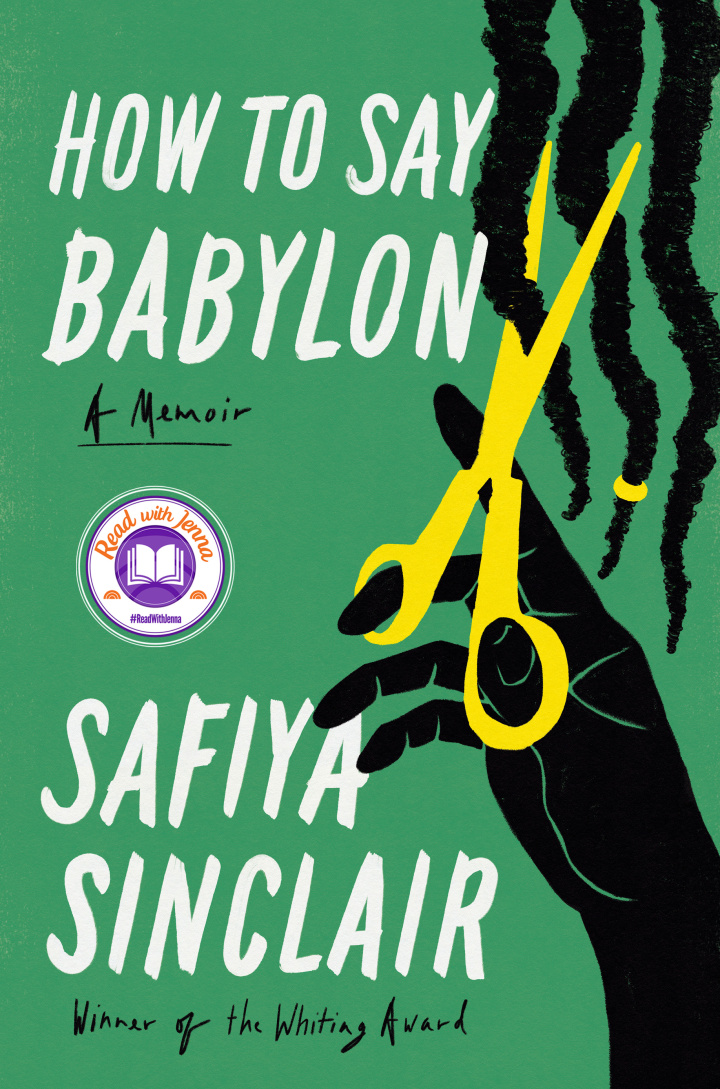Jenna Bush Hager's October 2023 Read With Jenna pick is a memoir she calls "incredible."
"How to Say Babylon" by Safiya Sinclair is a memoir about the author's upbringing in a Rastafarian family in Jamaica.
"She writes about her childhood in Jamaica growing up underneath the imposing views of her father," Jenna says.
Sinclair is a poet, and Jenna says it shows in her writing. "It's a book about freedom, choice, becoming who we're meant to be," Jenna says, but it's also about "family and a mom's devotion."
“How to Say Babylon” by Safiya Sinclair
Sinclair's father, growing up, was a musician and an adherent to a strict sect of Rastafari, along with less than one percent of Jamaica's population. He is consumed with keeping Babylon — or the outside world, specifically America — from entering his family home and stripping his wife and daughters of their purity.
Raised under rigidity and mood swings, Sinclair did not have a sense of voice. Then, she started writing.
"I always say this book is about a young woman on the precipice of her existence. Having to navigate a life and religion that I was raised in, that diminished me," Sinclair tells TODAY.
Sinclair says she was faced with a decision, one that he book tracks: "Either stay within that life and accept the fate and the future that my father imagined for me, or define my womanhood on my own terms. To choose what kind of woman I wanted to be for myself," she said.
"This book is my journey to forging my own sense of place in the world and learning to celebrate my womanhood as a gift instead of being diminished by it," she continues.
Sinclair's world opens up when she is admitted to a private school and later, after much determination, to school in the U.S. — the place her father most fears.
The book gives insight into Rastafari culture, particularly the community's women, who have little autonomy and their "highest virtue is obedience, silence, compliance."
"Most people don't know a Rasta woman or think about what her life would be like beyond the stereotypes they have about Rastafari culture itself. I'm presenting something people might not have thought about," she says.
Through poetry, she was "no longer bent under the silence" she grew up in, and could "finally speak." She credits her love of poetry with her mom, who raised her and her siblings among literature.
Ahead of the memoir's publication, she says she feels a sense of "calm." The hardest part was the six months she spent writing the book and reliving often harrowing memories. "I'm trying my best to enjoy whatever comes next," she says.
The book was part of her healing journey. "I felt this deep and profound sense of catharsis. It has become its own conduit for healing," she says — both for her personally and for her relationships.
After reading a segment of her book, Sinclair says her father apologized for his actions for the first time in his life.
"(He apologized) for everything. The really strict and authoritarian way we were raised. His anger a lot of the time. The violence some of the time. This was the first time he named it, claimed it and directly apologized for it. I don't think that would have happened if I hadn't written this book," she says. "It meant everything."

